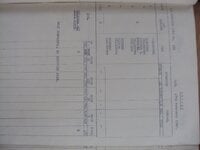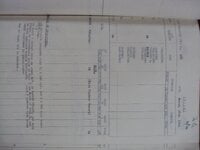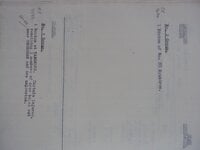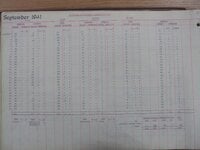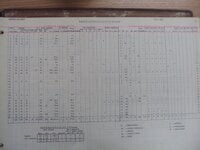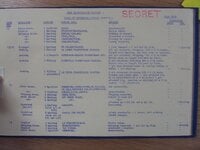Escuadrilla Azul
Tech Sergeant
- 2,128
- Feb 27, 2020
That is a serious effort on your part.Hi,
I have those books (except the one about the 2nd group) and what i found that one is really generic (John Starkey) and gives a general view but nothing else and Franks' book well, looks more like a statistics digest than a book explaining the missions, but is a very good start.
So being interested in this period mainly started because it were the würger's years and i realy like the würger, i started with the JG26 books from Caldwell but then, when looking at the RaF side, there was no equal. So i started to dig, looking for books but not one fulfilled what i really wanted : a Day to Day Daylight operations record for the Raf, with Maps, flight-plans, timings , serial numbers, airplane models, pilots' names, losses, claims, target info (if present), etc, etc . So i downloaded 40Gig's of data from the national archives, Orbs and combat reports, the whole losses list from the german archives and other stuff found here and there and i will (try to) synthesize this data into a day to day view of each "mission" with the Luftwaffe action also present (Caldwell's Jg26 and Mombeek's JG2 books are really a must for anyone interested by the channel front).
For the moment, i'm working on the german losses, from original LW documents, for the Luftflotte2and3, throwing al the data manually into a database, so it would be easier to search and also to make statistics (i like stats) but it's seriously time consuming. 1month of LW losses can take up to 8hours work.
anyway, i limit myself to the FighterCommand (goup11+12) missions, and only the ones in day-time, so the intruders missions won't be there, nor the Coastal command.
It's my personal project i work on within my "free-time" so it won't be finished next month or even next year...
Please, keep us informes about that proyecto. A bunch here are surely interesting in buying that book (or books)

